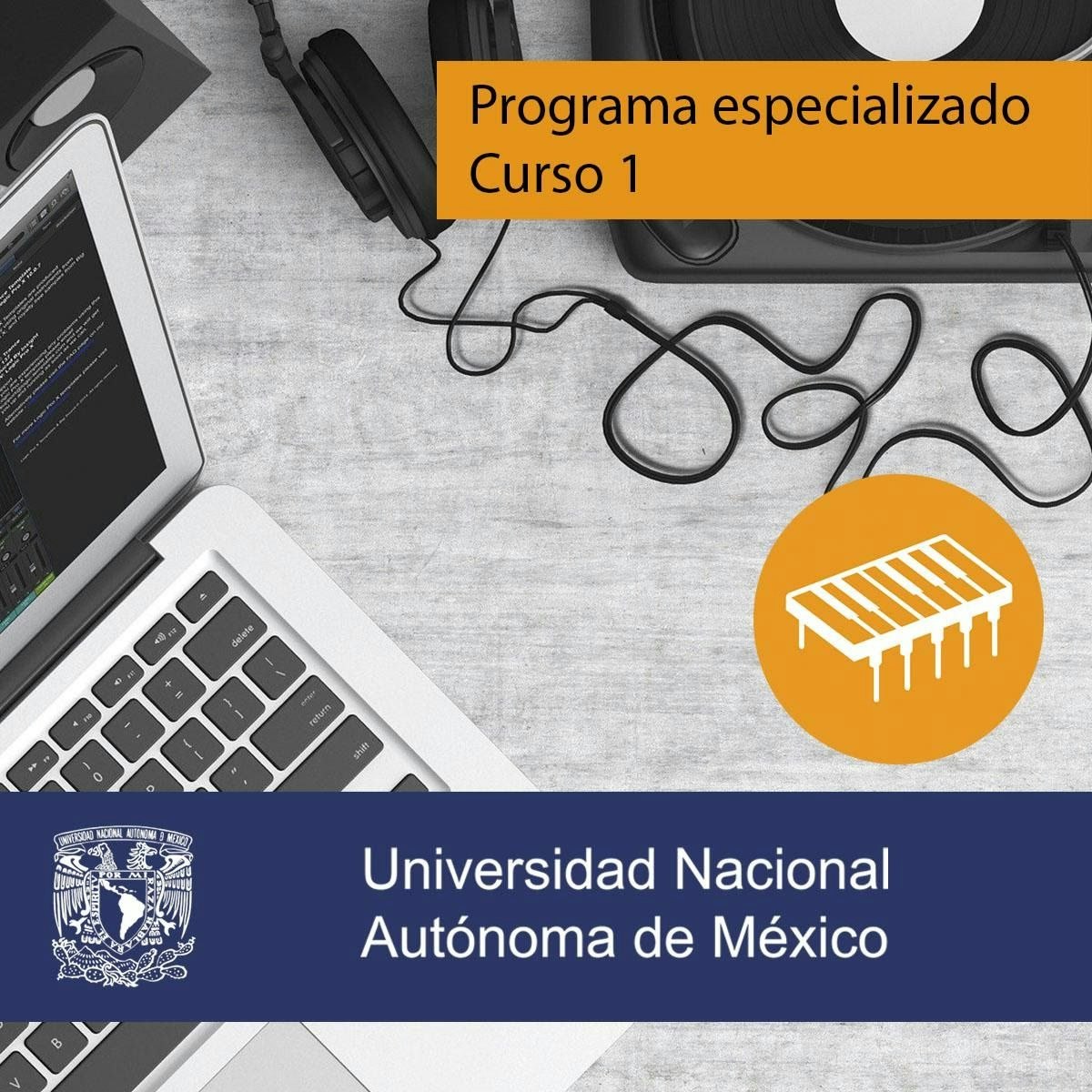Sound Engineer
A Comprehensive Guide to a Career as a Sound Engineer
A Sound Engineer, often interchangeably called an Audio Engineer, operates at the fascinating intersection of art, technology, and science. They are the skilled professionals responsible for capturing, manipulating, mixing, reproducing, and reinforcing sound. Whether it's the crystal-clear vocals on a hit record, the immersive soundscape of a blockbuster film, or the balanced audio ensuring every word is heard at a live event, a sound engineer's touch is essential.
Working as a sound engineer can be incredibly rewarding. Imagine shaping the sonic identity of a new album, collaborating closely with musicians and producers to realize their creative vision. Picture yourself crafting the intricate audio details that bring a movie scene to life, or managing the complex sound systems that energize thousands at a concert or festival. The field offers diverse challenges, blending technical mastery with creative problem-solving.
Introduction to Sound Engineering
What Does a Sound Engineer Do?
At its core, sound engineering involves the technical aspects of sound during recording, mixing, and reproduction processes. This includes setting up microphones, operating recording equipment, using digital audio workstations (DAWs) to edit and manipulate audio, and applying effects like reverb and equalization. The goal is typically to achieve a specific sonic outcome, whether that's clarity, impact, atmosphere, or realism.
Responsibilities vary significantly depending on the specific role and industry. A studio engineer might focus on capturing pristine recordings and crafting meticulous mixes. A live sound engineer manages sound reinforcement systems for concerts and events, ensuring optimal sound for both the audience and performers. Post-production engineers for film and TV handle dialogue editing, sound effects design, and final mixing.
Regardless of the specialization, a sound engineer needs a deep understanding of audio principles, equipment operation, and often, music itself. They translate artistic intentions into technical execution, ensuring the final product sounds polished, professional, and emotionally resonant.
This introductory course provides a good overview of the professional audio environment.
A Brief History of the Role
The role of the sound engineer emerged alongside recording technology in the late 19th and early 20th centuries. Early recording involved purely mechanical processes, capturing sound waves onto cylinders or discs. With the advent of electrical recording in the 1920s, using microphones and amplification, the need for technicians to operate and optimize this new equipment grew.
The mid-20th century saw the development of magnetic tape recording, multitrack recording, and stereophonic sound. These innovations vastly expanded creative possibilities and solidified the sound engineer's role as a crucial collaborator in music production. Figures like Les Paul pioneered techniques that are now standard practice.
The digital revolution, beginning in the late 1970s and accelerating through the 80s and 90s, fundamentally changed the field. Digital Audio Workstations (DAWs) running on computers replaced large consoles and tape machines for many tasks, democratizing recording and editing capabilities. Today, engineers work with sophisticated digital tools alongside classic analog gear, blending the best of both worlds.
Understanding music history can provide valuable context for a sound engineer.
Where Do Sound Engineers Work?
Sound engineers find employment across a wide range of industries where high-quality audio is paramount. The music industry is perhaps the most obvious, with engineers working in recording studios, mixing facilities, and mastering houses. They are integral to the creation of albums, singles, and soundtracks.
Film and television production relies heavily on sound engineers for location sound recording, Foley artistry, sound effects editing, dialogue editing, and final mixing (re-recording mixing). The goal is to create a seamless and impactful audio experience that complements the visuals.
Live events, including concerts, theater productions, corporate events, and festivals, require skilled live sound engineers. These professionals manage public address (PA) systems, monitor mixes for performers, and ensure consistent, clear audio for the audience. Broadcasting (radio and television) also employs engineers to manage audio signals for transmission.
The rapidly growing video game industry is another major employer, needing sound designers and audio implementers to create immersive and interactive game audio. Other areas include software development (audio plugins), hardware manufacturing, acoustics consulting, and education.
Understanding the business side of the music industry can be beneficial for engineers working in that sector.
Core Skills for Sound Engineers
Technical Proficiency
A sound engineer's toolkit is built on a foundation of strong technical skills. Understanding signal flow – the path an audio signal takes from source (like a microphone or instrument) through various processors (like EQs and compressors) to its destination (like recorders or speakers) – is fundamental. This knowledge is crucial for setting up sessions, troubleshooting problems, and achieving desired sonic results.
Proficiency with industry-standard Digital Audio Workstations (DAWs) is essential. Software like Avid Pro Tools, Apple Logic Pro, and Ableton Live are common platforms for recording, editing, mixing, and mastering. Engineers must be comfortable navigating these complex programs efficiently.
A working knowledge of acoustics – how sound behaves in different spaces – helps engineers make informed decisions about microphone placement and room treatment. Understanding electronics basics, microphone types and techniques, console operation (both analog and digital), and audio processing tools (EQ, compression, reverb, delay) are all vital technical competencies.
These courses offer introductions to essential tools and concepts.
These books offer in-depth knowledge on recording and mixing techniques.
Essential Soft Skills
While technical prowess is necessary, it's often the soft skills that differentiate a good engineer from a great one. Collaboration is key. Engineers rarely work in isolation; they interact constantly with artists, producers, directors, musicians, and other technical staff. Being able to listen actively, communicate ideas clearly, and work effectively as part of a team is crucial.
Problem-solving under pressure is another vital skill. Technical glitches are common, especially in live sound and complex studio sessions. Engineers need to diagnose and fix issues quickly and calmly, often with tight deadlines looming. Adaptability is also important, as engineers must adjust to different musical genres, workflows, personalities, and technological setups.
Critical listening – the ability to discern subtle nuances in sound, identify technical flaws, and make informed aesthetic judgments – is arguably the most important skill. This develops over time through experience and dedicated practice. Attention to detail is paramount, as small adjustments can significantly impact the final audio quality.
Keeping Pace with Emerging Trends
The field of audio technology is constantly evolving, requiring engineers to be lifelong learners. One major trend is the rise of immersive or spatial audio formats like Dolby Atmos and Ambisonics. These technologies move beyond traditional stereo or surround sound to create three-dimensional audio experiences, finding applications in music, film, gaming, and virtual reality. Engineers proficient in these formats are increasingly in demand.
Artificial intelligence (AI) is also making inroads into audio engineering. AI-powered tools can now assist with tasks like mixing, mastering, noise reduction, and even music composition. While unlikely to replace human engineers entirely, understanding how to leverage these tools effectively is becoming an important skill. AI might automate certain repetitive tasks, freeing up engineers to focus on more creative aspects.
Staying updated involves reading industry publications, attending workshops and conferences (like those hosted by the Audio Engineering Society), experimenting with new software and hardware, and engaging with online communities. Continuous learning ensures skills remain relevant in a dynamic technological landscape.
This book provides insights into mastering audio, including adapting to new formats.
Formal Education Pathways
Degree Programs and Focus Areas
Many aspiring sound engineers pursue formal education through dedicated degree programs. These are commonly offered as Associate's or Bachelor's degrees in fields like Audio Engineering, Sound Recording Technology, Music Technology, or variations thereof. Such programs typically provide a structured curriculum covering acoustics, electronics, digital audio theory, recording techniques, mixing, mastering, and often music theory and ear training.
University programs often blend theoretical knowledge with hands-on lab time in professional-level studios. This provides invaluable experience with industry-standard equipment and workflows under expert guidance. Some programs may offer specialization tracks, such as post-production audio, live sound reinforcement, or game audio.
Choosing a program involves considering factors like faculty expertise, facility quality, industry connections, internship opportunities, and curriculum focus. Some programs lean more towards the technical/engineering aspects (often within Engineering departments), while others emphasize the musical and production aspects (often within Music or Performing Arts departments).
These courses cover foundational music theory and physics concepts often included in degree programs.
This book can serve as a solid reference for music theory.
The Role of Certifications
Alongside degrees, professional certifications can demonstrate proficiency with specific tools or platforms widely used in the industry. Perhaps the most recognized are the certifications offered by Avid for its Pro Tools software, ranging from User-level to Expert-level in different domains like music production or post-production.
Other manufacturers and organizations also offer certifications for specific hardware (like mixing consoles) or software (other DAWs, audio plugins). While not always a strict requirement for employment, certifications can enhance a resume, particularly for entry-level positions. They signal to potential employers a verified level of competence with key technologies.
Certifications are often pursued alongside formal education or as part of continuing professional development. They are typically achieved by passing standardized exams after completing specific training courses or through self-study. They are particularly valuable for demonstrating skills in rapidly evolving areas or highly specialized software.
Advanced Studies and Research
For those interested in pushing the boundaries of audio technology, conducting research, or teaching at the university level, advanced degrees such as a Master's or Ph.D. may be appropriate. These programs delve deeper into specialized areas like psychoacoustics (the study of sound perception), digital signal processing (DSP), architectural acoustics, or advanced recording and mixing techniques.
Research-focused pathways often involve work in university labs or collaborations with industry partners on cutting-edge developments. Graduates might pursue careers in academia, research and development for audio technology companies, or highly specialized consulting roles.
These advanced degrees require a strong aptitude for mathematics, physics, and computer science, in addition to a passion for audio. They represent a significant commitment to deep specialization within the broader field of sound engineering.
Exploring the psychology of music can be relevant for advanced studies.
Online and Self-Directed Learning
Is a Formal Degree Always Necessary?
While formal education provides structure and resources, it's not the only route into sound engineering. Many successful engineers are largely self-taught or learned through apprenticeships and hands-on experience. Passion, dedication, a good ear, and a strong portfolio of work can often open doors, especially in certain sectors like music production or live sound.
Online learning platforms have made high-quality educational content more accessible than ever. It's possible to learn foundational concepts, software proficiency, and specific techniques through online courses, tutorials, and workshops, often at a fraction of the cost of a traditional degree. This pathway requires significant self-discipline and motivation.
For those considering a career pivot or facing financial constraints, online learning offers a flexible and affordable starting point. OpenCourser provides tools to browse courses in Music and Technology, save options to a personalized list using the Save to List feature, and find potential savings on the Deals page.
These courses offer introductions to music creation and technology suitable for self-starters.
The Power of Project-Based Learning
Regardless of educational path, practical experience is non-negotiable. Theoretical knowledge is essential, but skills are truly honed through application. Project-based learning involves actively working on real-world (or simulated real-world) audio tasks. This is where concepts solidify and genuine competence develops.
Aspiring engineers should seek opportunities to record local musicians, mix tracks (even if sourced online), create sound designs for student films or indie games, volunteer at local venues or places of worship to assist with sound, or simply experiment relentlessly within their chosen DAW. Building a portfolio of diverse projects demonstrates practical skills and passion to potential employers or clients.
Setting personal projects, like challenging oneself to recreate the mix of a favorite song or mastering a track to commercial loudness standards, provides focused practice. Documenting the process and the results contributes valuable content to a portfolio or demo reel.
Many online courses incorporate projects, like this one focused on podcast production.
Blending Online Learning with Other Training
Online learning doesn't have to be an all-or-nothing approach. It can effectively supplement formal education or on-the-job training. University students might use online courses to gain deeper knowledge of a specific software plugin or mixing technique not covered extensively in their curriculum.
Working professionals can leverage online resources for upskilling – learning about new technologies like immersive audio or mastering the latest version of their primary DAW. It provides a flexible way to stay current without taking significant time away from work. Freelancers might use online courses to broaden their service offerings.
Combining structured online courses with informal learning (like reading blogs, watching expert interviews) and, crucially, hands-on practice creates a powerful, personalized learning path. The OpenCourser Learner's Guide offers tips on structuring self-learning and staying motivated.
These courses explore specific musical techniques or software features, ideal for supplementary learning.
Career Progression in Sound Engineering
Starting Out: Entry-Level Roles
Most careers in sound engineering begin with entry-level positions focused on learning the fundamentals and assisting senior staff. Common starting points include roles like Studio Runner (handling administrative tasks, setup, client hospitality), Intern, or Assistant Engineer. These roles provide exposure to professional workflows, studio etiquette, and equipment handling.
In live sound, one might start as a Stagehand or Audio Technician (often labeled A2), primarily responsible for setting up microphones, cables, and PA systems under the direction of the lead engineer (A1). In film, entry roles could be Production Sound Assistant or Trainee Sound Editor.
These initial stages are crucial for building foundational knowledge, developing professional habits, and making industry connections. It often involves long hours and less glamorous tasks, but the experience gained is invaluable for future advancement. Paying dues and demonstrating reliability and enthusiasm are key.
Mid-Career Specialization
After gaining foundational experience, engineers typically begin to specialize. This might involve focusing on a specific stage of production (recording, mixing, mastering) or a particular industry (music, film, games, live sound). Mid-career roles often involve greater autonomy and creative responsibility.
Examples include Recording Engineer (overseeing tracking sessions), Mixing Engineer (balancing and enhancing multitrack recordings), Mastering Engineer (preparing final mixes for distribution), Post-Production Sound Editor (handling dialogue, effects, or Foley), Game Audio Designer/Implementer (creating and integrating sounds into game engines), or Lead Live Sound Engineer (FOH or Monitor Engineer).
At this stage, engineers build their reputation based on the quality of their work, their technical skills, and their collaborative abilities. Developing a distinct sonic signature or expertise in a specific genre or technology can help advance one's career.
Reaching Leadership Positions
With extensive experience and a proven track record, sound engineers can progress into leadership roles. These positions often involve managing teams, overseeing large projects, making high-level creative and technical decisions, and handling budgets.
In a studio environment, this could mean becoming a Chief Engineer or Studio Manager, responsible for technical operations and staff. In film sound, roles like Supervising Sound Editor or Re-recording Mixer carry significant creative weight and team leadership responsibilities.
In the game industry, an Audio Director guides the overall sonic vision for a game title and manages the audio team. In live sound, senior engineers might become Production Managers or System Designers for large tours or installations. Some highly experienced engineers establish their own successful freelance businesses or recording studios.
Tools and Technologies in Modern Sound Engineering
Industry-Standard Hardware and Software
A sound engineer's proficiency is closely tied to their mastery of essential tools. Digital Audio Workstations (DAWs) remain central to most workflows. While many DAWs exist, Avid Pro Tools has long been an industry standard, particularly in major music studios and post-production facilities. Apple Logic Pro and Ableton Live are also widely used, especially in music production and electronic music.
High-quality microphones are critical for capturing sound accurately. Engineers must understand different microphone types (dynamic, condenser, ribbon) and their polar patterns to choose the right tool for each source. Mixing consoles, whether large-format analog desks or digital control surfaces, provide hands-on control over levels, panning, and processing.
Accurate studio monitors (speakers) and headphones are essential for critical listening during mixing and mastering. While software plugins have largely replaced hardware for many effects, outboard gear like analog compressors, EQs, and reverb units are still prized for their unique sonic character.
These courses cover some essential musical elements engineers manipulate.
The Rise of Immersive Audio
One of the most significant recent technological shifts is the move towards immersive audio formats. Systems like Dolby Atmos, DTS:X, and Sony 360 Reality Audio allow engineers to place sounds precisely in a three-dimensional space around the listener, going beyond traditional left-right stereo or planar surround sound. This creates more realistic and engaging audio experiences.
Initially prominent in cinema, immersive audio is rapidly expanding into music streaming, gaming, virtual reality (VR), and augmented reality (AR). Major streaming platforms now support immersive music mixes, and game engines increasingly incorporate sophisticated 3D audio rendering. This requires engineers to learn new mixing techniques, software tools (specific DAW integrations and plugins), and speaker setup configurations.
Mastering immersive audio workflows is becoming a valuable skill set. It requires understanding object-based audio concepts, binaural rendering for headphones, and how to translate mixes effectively across different playback systems, from home theater setups to standard headphones.
AI-Driven Audio Tools
Artificial intelligence is increasingly being integrated into audio software, offering new possibilities and efficiencies. AI-powered mastering platforms can analyze a mix and automatically apply processing to achieve a polished, commercially competitive sound. Intelligent EQs and compressors can identify problematic frequencies or dynamically adjust settings based on the audio content.
AI is also used for tasks like noise reduction, dialogue isolation, track separation (splitting a mixed song into individual stems like vocals, drums, bass), and even generating musical ideas or sound effects. While these tools can speed up workflows and provide helpful starting points, they are generally seen as assistants rather than replacements for skilled engineers.
The human element of critical listening, creative intent, and nuanced decision-making remains paramount. However, understanding how to effectively utilize AI tools is becoming part of the modern sound engineer's skill set, allowing them to work faster and potentially achieve results that were previously difficult or time-consuming.
Ethical Challenges in Sound Engineering
AI and Audio Manipulation
The increasing sophistication of AI in audio raises ethical questions. Tools capable of generating realistic voice clones or manipulating recordings undetectably present potential risks related to misinformation (deepfakes) and authenticity. Engineers may face dilemmas regarding the use of such technologies, balancing creative possibilities with responsible application.
Concerns also exist about AI potentially devaluing human skills or leading to job displacement in certain areas, although currently, AI is primarily viewed as an assistive technology. Discussions around fair compensation and crediting when AI tools play a significant role in the creative process are also emerging.
Maintaining transparency about the use of AI in audio production and adhering to ethical guidelines will be increasingly important as these technologies continue to evolve. Engineers need to stay informed about the capabilities and implications of AI tools.
Cultural Sensitivity in Sound Design
Sound engineers, particularly those working in sound design for film, games, or music production, sometimes incorporate sounds or musical elements associated with specific cultures. This requires sensitivity and awareness to avoid cultural appropriation – the adoption or use of elements of a minority culture by members of the dominant culture, often without understanding or respect for its original context.
Responsible practice involves researching the cultural significance of sounds or musical styles, seeking collaboration or consultation when appropriate, and ensuring respectful representation. This avoids perpetuating stereotypes or misusing culturally significant sonic elements purely for exotic effect.
Developing cultural competence and approaching sound design with an ethical and informed perspective is crucial for creating work that is not only sonically effective but also culturally respectful.
Environmental Considerations
While perhaps less discussed, the environmental impact of the audio industry is another ethical consideration, particularly concerning large-scale live events and manufacturing. Major concerts and festivals consume significant amounts of energy for sound systems, lighting, and logistics. There is a growing awareness and movement towards more sustainable practices in live event production.
This includes using more energy-efficient equipment, optimizing logistics to reduce transportation emissions, managing waste responsibly, and exploring renewable energy sources. Engineers involved in system design and operation can contribute by being mindful of power consumption and supporting sustainable initiatives.
Similarly, the manufacturing of audio equipment involves resource extraction and electronic waste. While individual engineers have limited control over manufacturing processes, awareness of these issues contributes to broader industry conversations about sustainability and responsible consumption.
Global Opportunities for Sound Engineers
Key Regional Industry Hubs
While sound engineering opportunities exist worldwide, certain cities and regions have emerged as major hubs for specific industries. Los Angeles remains a global center for film and television post-production, as well as the music industry. Nashville is renowned for music recording, particularly country and related genres. New York City boasts a vibrant scene for music, theater, and post-production.
Internationally, London is a major hub for music production and post-production. Cities like Berlin, Tokyo, and Montreal also have significant audio industries, particularly in electronic music, gaming, or film. Understanding these regional specializations can help engineers target their job search or career development efforts.
However, opportunities are not limited to these major centers. Smaller regional markets often have thriving local music scenes, recording studios, live venues, and broadcast facilities that require skilled audio professionals.
The Rise of Remote Work
Advances in internet speeds and collaborative technologies have significantly increased opportunities for remote work in sound engineering. Tasks like mixing, mastering, editing, and sound design can often be performed remotely, allowing engineers to work with clients located anywhere in the world.
Platforms for file sharing, video conferencing, and remote DAW control facilitate collaboration across distances. This offers engineers greater flexibility in terms of location and lifestyle, and allows clients to access talent globally. Freelancing platforms also connect engineers with remote projects.
However, not all roles are suited for remote work. Recording sessions often require the engineer and performers to be in the same physical space. Live sound, by its nature, requires on-site presence. Furthermore, critical listening for high-stakes mixing and mastering ideally requires a calibrated acoustic environment, which can be challenging to replicate perfectly in a home setup.
Localization and International Markets
As media becomes increasingly globalized, the demand for audio localization services has grown. Localization involves adapting audio content – particularly dialogue – for different languages and cultural contexts. This is crucial for films, television shows, video games, and corporate videos distributed internationally.
Sound engineers specializing in localization work on tasks like dubbing (replacing original dialogue with translated recordings), subtitling synchronization, and mixing localized audio tracks to match the original production quality. This requires not only technical audio skills but often linguistic capabilities or close collaboration with translators and voice actors.
Working in localization offers opportunities to engage with international markets and diverse content. It requires meticulous attention to detail, ensuring that the translated audio integrates seamlessly with the original visuals and maintains the intended emotional impact.
Frequently Asked Questions
Is sound engineering being replaced by AI?
While AI tools are becoming more capable in assisting with tasks like mixing and mastering, they are unlikely to completely replace human sound engineers in the foreseeable future. AI excels at pattern recognition and optimization based on data, but it currently lacks the nuanced critical listening skills, creative judgment, and collaborative abilities of experienced human engineers.
AI is best viewed as a powerful tool that can enhance workflow efficiency and automate certain tasks. Engineers who learn to leverage AI effectively will likely have an advantage. The core roles involving subjective aesthetic decisions, understanding artistic intent, and complex problem-solving remain firmly in the human domain.
Can I enter the field without a formal degree?
Yes, it is possible to become a sound engineer without a formal degree. Many successful professionals entered the field through apprenticeships, self-study, and building practical experience. A strong portfolio demonstrating your skills, a good ear, technical aptitude, and networking are crucial if pursuing this path.
However, a formal degree can provide structured learning, access to high-end facilities, valuable industry connections, and potentially a competitive edge in the job market, especially for certain roles or larger companies. Online courses and certifications can bridge gaps for those without degrees. Ultimately, demonstrable skill and experience often weigh heavily.
What are typical salary ranges?
Salary expectations for sound engineers vary widely based on experience level, specialization, geographic location, and employment sector (e.g., freelance vs. salaried). Entry-level positions might start near minimum wage or offer modest salaries, often involving internships or assistant roles.
According to the U.S. Bureau of Labor Statistics, the median annual wage for broadcast, sound, and video technicians was $57,810 in May 2023. Experienced engineers in high-demand fields like film post-production or top-tier music mixing can earn significantly more, sometimes well into six figures, particularly if working freelance on major projects.
Factors influencing income include reputation, client base (for freelancers), the budget of projects worked on, and the specific niche within the industry. Researching salary data for specific roles and locations is recommended.
Are there health risks involved?
The most significant occupational health risk for sound engineers is noise-induced hearing loss (NIHL). Prolonged exposure to loud sound levels in studios or live venues can permanently damage hearing. It is absolutely essential for engineers to practice hearing conservation.
This includes using hearing protection (earplugs) when appropriate, taking regular breaks from loud environments, monitoring at moderate volume levels whenever possible, and getting regular hearing check-ups. Maintaining awareness of safe exposure limits and prioritizing hearing health is crucial for career longevity.
Other potential issues include ergonomic risks from long hours spent sitting at consoles or computers, and stress related to deadlines and high-pressure sessions. Maintaining a healthy lifestyle and work habits can help mitigate these risks.
How can I future-proof my skills?
The audio industry is dynamic, so continuous learning is key to staying relevant. Master the fundamentals of acoustics, signal flow, and critical listening, as these principles endure regardless of technological changes. Embrace new technologies like immersive audio and AI tools, learning how to integrate them effectively into your workflow.
Develop strong soft skills, particularly communication, collaboration, and problem-solving, as these are always in demand. Diversify your skill set if possible; for example, learning basic video editing or coding for game audio implementation can broaden opportunities. Build a strong professional network.
Adaptability and a willingness to learn are perhaps the most important assets for future-proofing. Stay curious, follow industry trends, and invest time in updating your knowledge and skills throughout your career.
These books offer foundational and advanced knowledge that remains relevant.
What are effective networking strategies?
Networking is vital in the often relationship-driven audio industry. For beginners, internships and assistant roles are primary networking opportunities, allowing you to learn from experienced professionals and demonstrate your work ethic. Attend local industry events, workshops, and conferences (like those by AES or regional organizations).
Engage respectfully in online forums and social media groups dedicated to audio engineering. Offer to help on projects, perhaps starting with smaller or independent productions to build connections and portfolio pieces. If you're a musician, collaborating with other artists can lead to engineering opportunities.
Be professional, reliable, and easy to work with. Building a reputation for quality work and a positive attitude is often the best form of networking, leading to recommendations and repeat business. Maintain connections authentically over time.
Embarking on a career as a sound engineer requires a unique blend of technical aptitude, artistic sensibility, and dedication. It's a field that demands continuous learning and adaptation but offers the immense satisfaction of shaping how the world experiences sound. Whether through formal education, online learning, or hands-on experience, the journey begins with a passion for audio and a commitment to mastering the craft.




















